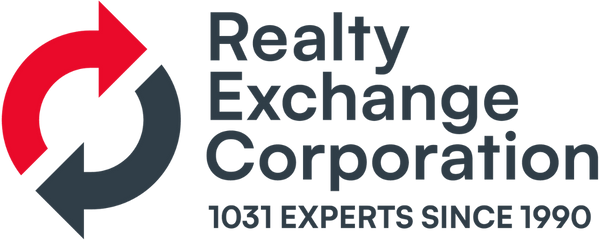Important Definitions
Basis
This is the original purchase price of your relinquished property, adjusted by any improvements you have made to the property while you have owned it and any depreciation you have taken on the property. Your basis in the relinquished property will be carried over to the replacement property, this is why exchanges are considered a tax deferral, any gain you get on the new property will be on top of the gain from your original relinquished property that you did not pay taxes on at the time of the exchange.
Boot
Any cash that is not reinvested is referred to as boot. This money is taxable up to the amount of gain that you have.
Delaware Statutory Trust (DST)
A trust set up for the purpose of owning and managing an investment. Most commonly used to own and manage real estate on behalf of its investors. Real Estate DSTs are a valid form of replacement property because what the investor is buying is a share of the real estate that the trust owns, which qualifies as like-kind for exchange purposes.
Depreciation
Reducing the value of a property on your books over time to account for the passage of time and its effects on your property. Tax depreciation is defined by IRS rules. Your basis is reduced by any depreciation you have taken while you have owned it.
Gain
This is the amount that you profited when you sold the property. Gain is what will be taxed by the IRS. How much profit you made when selling your property is a good way to think of gain, but the actual amount of gain is specifically defined by the IRS regulations and law.
Identification
The law specifies that a person doing a 1031 exchange has 45 days from the closing of their relinquished property to identify what property or properties they wish to replace it with. IRS regulations state that this identification must be unambiguous, in writing, and be signed by the exchanger. There are three rules that the IRS has defined to restrict the identification process:
Three Property Rule: The exchanger can identify up to three properties of any value as potential replacement properties. They may by any from the list or all.
200% Rule: The exchanger can identify more than three properties, but the total value of the list must be less than 200% of the sale price.
95% Rule: If the exchanger identifies more than three properties and the total value of their list is greater than 200% of the relinquished property, they must buy 95% of the identified list.
Investment Property
Investment property can be any real estate that is owned for the purpose of generating income. Some common types of property that qualify include land, rental property, and property used exclusively for a business.
Relinquished Assignment
The Relinquished Property assignment is the document you sign that assigns your QI, in this case Realty Exchange Corporation, into the sale of your property as the seller in your place. This allows the funds from the sale to be sent to us at closing instead of going to you.
Relinquished Property
This is the property you are selling in the exchange. It can be one property or multiple properties so long as all of the properties are considered real estate.
Replacement Assignment
The Replacement Property assignment is the document you sign that assigns your QI, in this case Realty Exchange Corporation, into the purchase of your replacement property as the buyer in your place. This permits us to use the exchange funds that are held in escrow to purchase the property that you have identified on your behalf.
Replacement Property
This is the property that you purchase using the funds from the sale of your relinquished property. This property must be real estate to qualify as like-kind.
Settlement Agent
Most sellers and buyers prefer to get help from an expert in real estate transactions to complete the settlement when they close the sale of their property. This service is frequently performed by a title insurance company, real estate attorney, or escrow company.
Taxpayer
A taxpayer is an individual or entitiy that files a tax return and has a tax ID number. What taxpayer owns the relinquished property when it sells is important in an exchange, as that same taxpayer must be the one receives the replacement property. For example: if the relinquished property is sold by a multi-member LLC, that LLC must be the one that recieves the replacement property, as it would be the one that would pay taxes on the gain in lieu of an exchange.
Qualified Intermediary (QI)
This is the person or entity who holds your funds during the exchange and facilitates the transaction. By IRS rules a QI can be anyone who is not your agent or a close relative, but we recommend that you choose a professional like Realty Exchange Corporation to help you with this part of the process to ensure it is completed correctly.
1031 Exchanges shouldn’t be scary.

Since 1990 we have been helping real estate investors with 1031 Exchanges.
We’d love to teach you how 1031 Exchanges work, what to avoid, and how we can help!
About Us
Since our founding in 1990, Realty Exchange Corporation’s sole mission is to provide qualified intermediary service to real property investors and their advisors for 1031 exchanges.
William Horan is a Certified Exchange Specialist® (CES), the qualified intermediary industry’s prestigious designation. The CES® designation requires years of experience, testing, adherence to a code of ethics and on-going continuing education.

